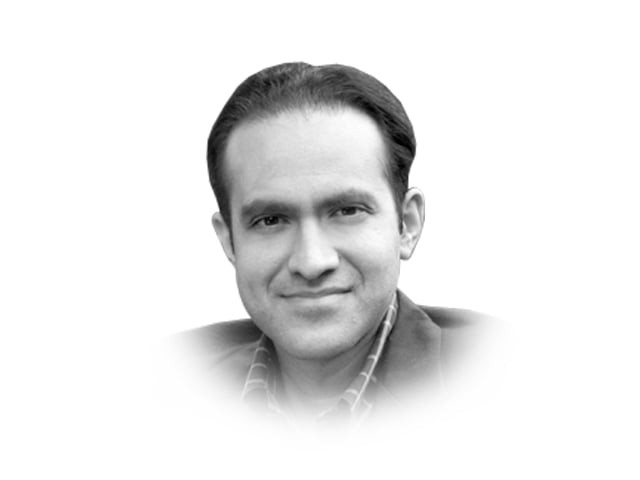Pakistan’s psyche after 9/11
To be fair, Pakistan is not the only place where 9/11 conspiracy theories have taken traction.

For me, the most troubling change in Pakistani society following 9/11 was a collective neurosis that the country developed around conspiratorial thinking. Even educated individuals in Pakistan refuse to think rationally about the causality of international events any more. To be fair, Pakistan is not the only place where 9/11 conspiracy theories have taken traction. There is an entire subculture which has developed around these theories and specious accuracy is provided all too often to mislead the public through hours of internet documentaries. Of course, conspiracy accounts have always been a feature of human societies. From the lunar landing to the “X-Files”, we humans like to believe alternative accounts and revel in suspicion.
The conspiratorial mindset is also one of the most insidious legacies of the Cold War — when many conspiracy theorists were actually proven correct. Pervasive secrecy in those dark days incubated these conspiracy theories, but now increased transparency and media scrutiny has made governments more aware of the risk of conspiratorial strategies. In conflict situations, nevertheless, such theories are common — most Serbs, for example, are still in denial about the Srebrenica massacre and the Japanese still obfuscate their atrocities in Korea and China.
However, denial in the Muslim world is far more consequential because it can very easily translate into hatred and violence through misinterpretation of theological tenets. The denial in the Muslim world emanates from three key sources: a) pre-existing distrust of the West; b) the ease with which misinformation is accepted by public media sources in Muslim countries; c) a reluctance on the part of western authorities to confront the conspiracy theories. All three aspects of this syndrome must be addressed. In my research on madrassas in Pakistan, the issue of civilian casualties during combat came across as the most common cause for distrusting America and for anger towards US policy. The reluctance of the US to directly tackle this issue or keep detailed and transparent count of actual civilian casualties in Iraq and Afghanistan has led to the most irate conspiracy accounts.
Furthermore, there is reflexive disdain in US policy circles when links are made between regional conflicts in the Middle East, Kashmir or Chechnya and Muslim anger. The US government also appears to be in denial about linkages between regional conflicts and Muslim anger, which in turn fuels Muslim denial about extremism.
Denial of extremism among Muslims is a serious challenge that must be confronted both internally and externally. Muslim organisations must be more scrupulous before publishing unsubstantiated accounts and internet rumours. Deconstructing erroneous conspiracy theories is essential. Indeed, in Islamic theology there are strict injunctions against blanket suspicion (termed ‘zan’ in Arabic) against fellow human beings. Religious Muslims will thus find that Islamic theology itself repudiates conspiratorial thinking.
The silver lining to this denial syndrome is that it reflects a general repugnance for terrorist acts among the Muslim population — they consider such acts abhorrent and hence wish to believe that someone else must be responsible. Yet, this reluctance to accept responsibility is now becoming a challenge for even those Muslim leaders who are willing to, occasionally, accept responsibility. Many are being labelled ‘sell-outs’ and splinter groups are forming within numerous Muslim organisations in the West. If we are to have acceptable reforms, a joint effort by Muslim organisations and the international community is essential to combat the onslaught of misinformation that is paralysing our psyche in a post-9/11 world.
Published in The Express Tribune, September 9th, 2011.



















COMMENTS
Comments are moderated and generally will be posted if they are on-topic and not abusive.
For more information, please see our Comments FAQ